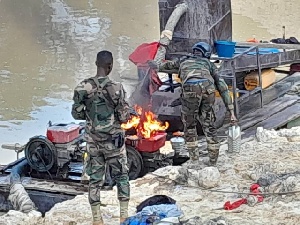Africa News of Friday, 16 May 2025
Source: www.ghanawebbers.com
Sudan: Amid Growing Insecurity, Sudanese See Lack of Police Professionalism
Nine out of ten citizens believe the government is failing to fight crime.
Key Findings:
More than half (51%) of Sudanese felt unsafe walking in their neighborhoods last year.
Thirty-seven percent feared crime in their homes.
The percentage of citizens feeling unsafe while walking rose from 28% to 40% between 2021 and 2022.
The poorest citizens are nearly three times more likely to feel unsafe compared to wealthier individuals.
Among those who sought police help last year, two-thirds (67%) found it difficult to get assistance.
Almost half (46%) reported having to pay a bribe for help.
When encountering police at checkpoints or during investigations, 36% paid a bribe to avoid issues.
About one-third (34%) believe most or all police officers are corrupt.
Forty-one percent trust the police somewhat or a lot.
Many citizens say police often use excessive force during protests (53%) and with suspected criminals (44%).
One-third (32%) report that police routinely stop drivers without good reason.
Twenty-five percent say police often engage in criminal activities themselves.
Overall, only 27% believe the police operate professionally and respect citizens' rights.
Sudanese overwhelmingly (89%) think the government is doing poorly at reducing crime.
Current Crisis:
Sudan has faced a prolonged crisis due to war between the Sudanese Armed Forces and Rapid Support Forces.
Over 150,000 Sudanese have died, and 15 million have been displaced.
About three million people have fled to neighboring countries.
Police Background:
Before this conflict, the Sudan Police Force was responsible for law enforcement and public safety.
The government attempted reforms under the National Police Forces Act of 2008.
The 2005 Comprehensive Peace Agreement aimed for better coordination among law enforcement agencies.
However, these reforms were not fully implemented due to political instability and tensions between North and South Sudan.
After President Omar al-Bashir's ouster in April 2019, new reforms began.
The government repealed laws that allowed religious policing for moral enforcement.
The Juba Peace Agreement in 2020 established a committee for integrating rebel groups into the police force.
Despite maintaining a functioning police force before the conflict, issues like corruption marred its reputation.
The RSF has committed widespread atrocities that undermined police authority in controlled regions.
This ongoing crisis has destroyed police infrastructure and fragmented their operations significantly.










